IBM
Latest

IBM fingernail sensor tracks health through your grip
The strength of your grip can frequently be a good indicator of your health, and not just for clearly linked diseases like Parkinson's -- it can gauge your cognitive abilities and even your heart health. To that end, IBM has developed a fingernail sensor that can detect your grip strength and use AI to provide insights. The device uses an array of strain gauges to detect the deformation of your nail as you grab objects, with enough subtlety to detect tasks like opening a pill bottle, turning a key or even writing with your finger.
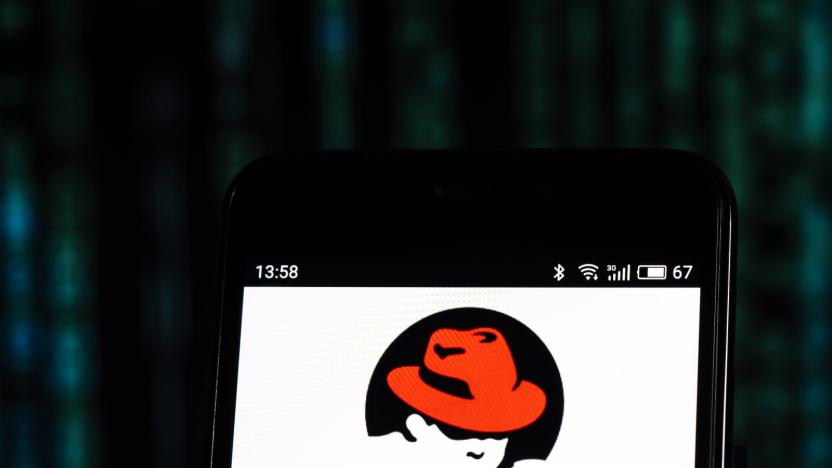
IBM buys Linux giant Red Hat to thrive in the cloud
IBM isn't a stranger to Linux by any stretch, but it might just become one of the platform's strongest supporters in the near future -- and shake up the cloud landscape, for that matter. IBM has announced a deal to buy Linux giant and open source enterprise software developer Red Hat for the equivalent value of $34 billion. Provided it clears regulatory hurdles, the acquisition should close in the second half of 2019.

Amazon Go is the inevitable evolution of supermarket retail
Amazon's cashierless "Go" markets have popped up in San Francisco, Seattle and Chicago, promising patrons the "future of shopping": a frictionless grocery buying experience that relies on high-tech tracking technology instead of human interaction to get products off the shelves and into your canvas totes. This indeed may be the supermarket of the future, at least as Bezos envisions it, but not one that we couldn't have predicted. The development of the Go shopping experience is little more than the latest step in the logical evolution of retail.
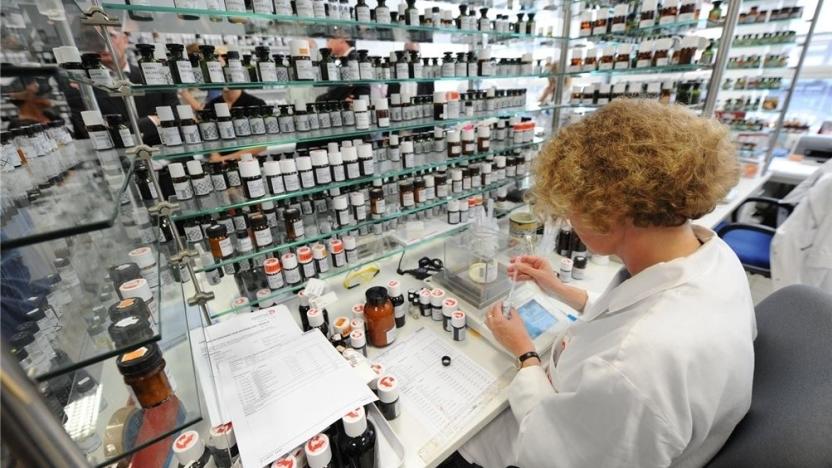
AI might concoct your next perfume
Perfumers look out: IBM Research partnered up with one of the top producers of flavors and fragrances, Symrise, to create an perfume-concocting AI. Named Philyra, after the Greed goddess of fragrance, it uses machine learning to sift through thousands of ingredients, formulas and industry trends to derive what IBM considers to be unique combinations. IBM is leveraging the AI to help perfumers design the next great scent rather than a machine that will replace experts of the human nose.

IBM finally proves that quantum systems are faster than classicals
In 1994, MIT professor of applied mathematics Peter Shor developed a groundbreaking quantum computing algorithm capable of factoring numbers (that is, finding the prime numbers for any integer N) using quantum computer technology. For the next decade, this algorithm provided a tantalizing glimpse at the potential prowess of quantum computing versus classical systems. However, researchers could never prove quantum would always be faster in this application or whether classical systems could overtake quantum if given a sufficiently robust algorithm of its own. That is, until now.

Walmart will use blockchain to ensure the safety of leafy greens
Walmart is anxious about the safety of its food following bacterial outbreaks for lettuce and other food, and it's hoping technology will set shoppers' minds at ease. It's telling its leafy green suppliers to use a blockchain system (designed with IBM's help) to track the shipments of their produce. The secure, distributed ledger will help trace the vegetables' path from the farm to the store, revealing the source of any potential outbreak in seconds instead of days. This isn't just for Walmart's internal benefit, either. Eventually, you could scan a bag and use the blockchain to find out where your spinach came from.

IBM used NYPD surveillance cameras to develop facial recognition tech
It's not a secret that the NYPD has been using facial recognition tech, though the details of the program have been kept under wraps. Now, The Intercept has learned that IBM developed the technology for the NYPD using police camera footage. The fact that the company had access to these thousands of images of New Yorkers, taken from fewer than 50 of 512 total cameras, was not made public previously. Using these secret images, IBM was able to create a program that searches camera footage by identifiers such as clothing color, hair color, facial hair and skin tone.

Researchers teach a computer to compose sonnets like Shakespeare
In addition to penning 37 plays, William Shakespeare was a prolific composer of sonnets -- crafting 154 of them during his life. Now, more than 400 years after his death, the Bard's words are influencing a new generation of poets. It's just that these writers do so with silicon imaginations and digital quills.

IBM's Watson reportedly created unsafe cancer treatment plans
Last year, studies presented at the American Society of Clinical Oncology's annual meeting showed that IBM Watson was pretty darn good at creating treatment plans for cancer patients. Turns out, however, that the AI is still far from perfect: according to internal documents reviewed by health-oriented news publication Stat, some medical experts working with IBM on its Watson for Oncology system found "multiple examples of unsafe and incorrect treatment recommendations." In one particular case, a 65-year-old man was prescribed a drug that could lead to "severe or fatal hemorrhage" even though he was already suffering from severe bleeding.
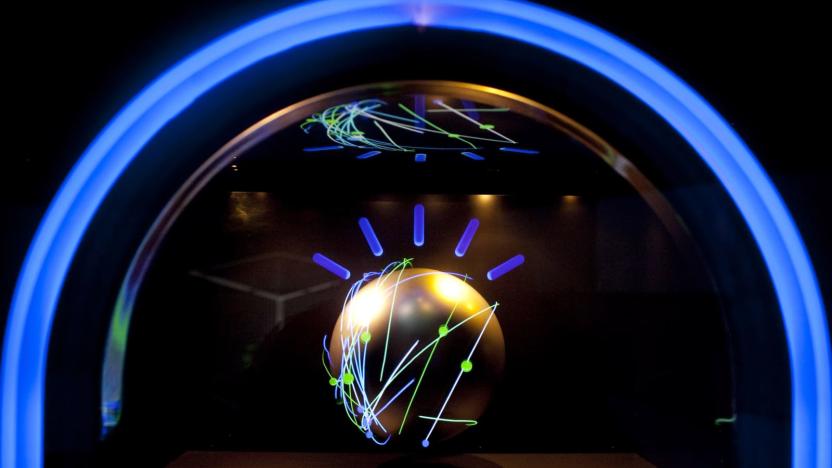
IBM extends deal using Watson to support veterans with cancer
IBM is making further use of Watson in the fight against cancer. The tech giant has extended a team-up with the US Department of Veterans Affairs that taps Watson for help treating soldiers with cancer, particularly stage 4 patients who have few other options. The new alliance runs through "at least" June 2019 and will continue the partnership's existing strategy. Oncologists and pathologists first sequence tumor DNA, and then use Watson's AI to interpret the data and spot mutations that might open up therapeutic choices.
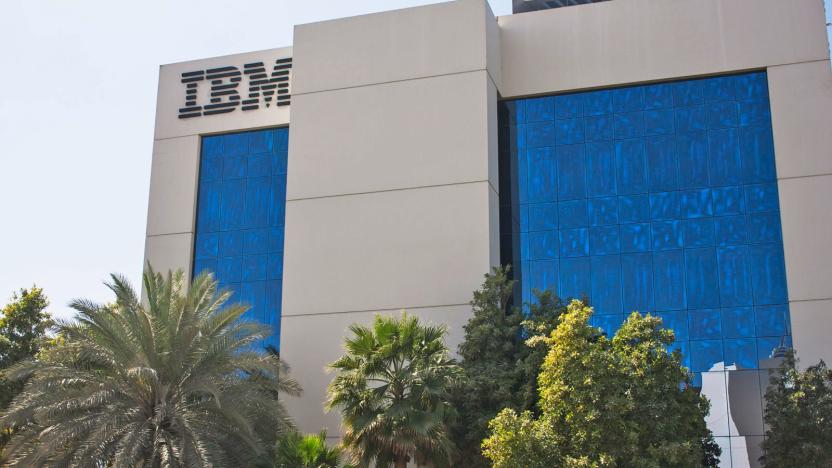
IBM demands $167 million from Groupon for using its patents
IBM and Groupon have been engaged in a legal battle over patents since 2016, with the tech giant accusing the deals website of violating four of its e-commerce IPs without permission. Now, IBM is seeking $167 million from Groupon, telling jurors that other companies like Amazon and Facebook bought licenses to use its technologies for between $20 million to $50 million, while the deals marketplace refuses to do so. "The new kid on the block refuses to take responsibility for the technology it's using," IBM lawyer John Desmarais said in a statement. "IBM spends literally billions of dollars every year on research and development to make our lives easier."

The newest ISS 'crew member' will be a flying robot with AI (updated)
A curious robot is heading to the ISS aboard the next SpaceX resupply mission. It's shaped like a ball with a flattened surface where its face is drawn on a screen -- plus, it can speak, respond to spoken commands and fly. The machine called CIMON, which is short for Crew Interactive Mobile Companion, is pretty much a flying IBM-developed brain with a body and flight mechanism created by Airbus. It's the companies' joint project with the German Aerospace Center and was created to be a hands-free assistant that can make astronauts' tasks easier.
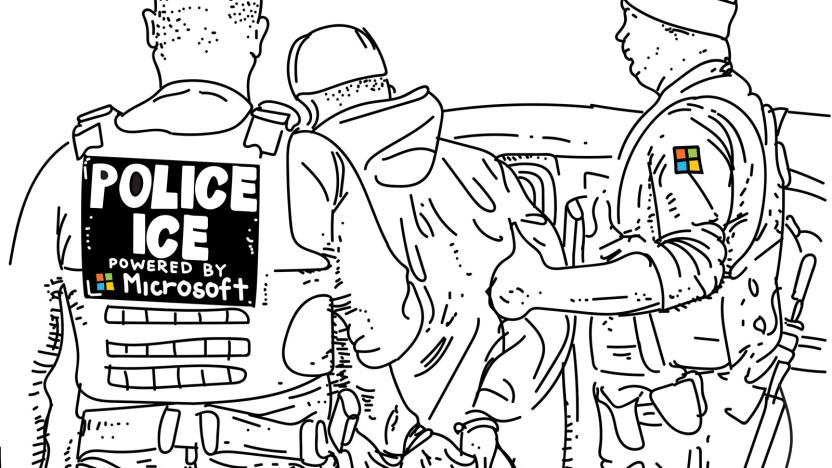
Microsoft’s ICE involvement illustrates tech’s denial problem
Nearly a decade ago, I had the good fortune of being one of the last people to interview the founder of Commodore International, Jack Tramiel (famous for Commodore computers and the popular C64), before he passed away. At 83, he died from heart failure after pioneering the consumer market for personal computers and home gaming, and working toward changing people's lives for the better through technology.

White House reportedly considers GDPR-like data protections
Online data privacy is a hot topic right now for a number of reasons. US residents and elected officials alike still have their eyes on Facebook as concerns continue to circulate over the policies that led to the Cambridge Analytica scandal. Further, more recent reports have revealed that the company shared data with a number of mobile device makers, sparking unease over what that means for consumers as well as national security. On the other side of the issue, Europe has now instituted its General Data Protection Regulation (GDPR), the most rigorous set of privacy laws to date. Now, it looks like US officials are interested in exploring some regulations of their own.

IBM’s Project Debater is an AI that's ready to argue
A large group of journalists and IBM employees sit quietly while a black monolith (yes, like the one found in 2001: A Space Odyssey) with a display shows three animated blue balls floating in front and behind each other. The assembled humans are waiting for Project Debater to state its rebuttal. It's arguing for government-subsidized space exploration. It's parsing the four-minute opening remarks of 2016 Israeli national debate champion Noa Ovadia. It's thinking, and its reply is impressive but not always natural.

Fox Sports' World Cup Highlight Machine is powered by IBM's Watson
We're only ten days away from the start of the FIFA World Cup 2018. And for soccer (er, football) fans in the US, Fox Sports will be the TV network responsible for bringing them all 64 games from Russia, at least if they want to watch them in English. But, beyond its broadcast offerings, Fox Sports wants to keep people engaged in the competition in different ways. Aside from its partnership with Twitter, which comes in the form of a show that'll stream live from Russia, Fox Sports has teamed up with IBM to build the ultimate World Cup Highlight Machine. Powered by Watson artificial intelligence, this video hub lets you create on-demand clips from every FIFA World Cup tournament dating back to 1958.

IBM built a handheld counterfeit goods detector
Just a month after IBM announced it's leveraging the blockchain to guarantee the provenance of diamonds, the company has revealed new AI-based technology that aims to tackle the issue of counterfeiting -- a problem that costs $1.2 trillion globally. IBM Crypto Anchor Verifier brings together AI and optical imaging to help prove the identity and authenticity of frequently forged goods such as fine wine, diamonds and medicine, as well as analyze water quality and detect bacteria, such as E.coli. And the technology is small enough to use with a cell phone camera.

BMW, Ford and GM want to bring blockchain to your car
Seemingly every company is determined to hop on the blockchain bandwagon, and that includes automakers. BMW, Ford, GM, Renault and and a string of tech partners (including Bosch and IBM) have formed the Mobility Open Blockchain Initiative, a group that hopes to use blockchain's distributed, decentralized ledger technology across many aspects of your experience, even when you're not driving. They hope to create standards that allow for secure payments for everything from autonomous car hailing to congestion charges to ridesharing.

IBM is using blockchain to confirm the origins of jewelry
While blockchain is the system that supports cryptocurrency, the decentralized ledger can have wide applications outside of crypto. Today, TechCrunch reports that IBM has set up a blockchain system to trace the provenance of jewelry. TrustChain accomplishes this by following gems from the mine where they're procured all the way to the store where they are sold.
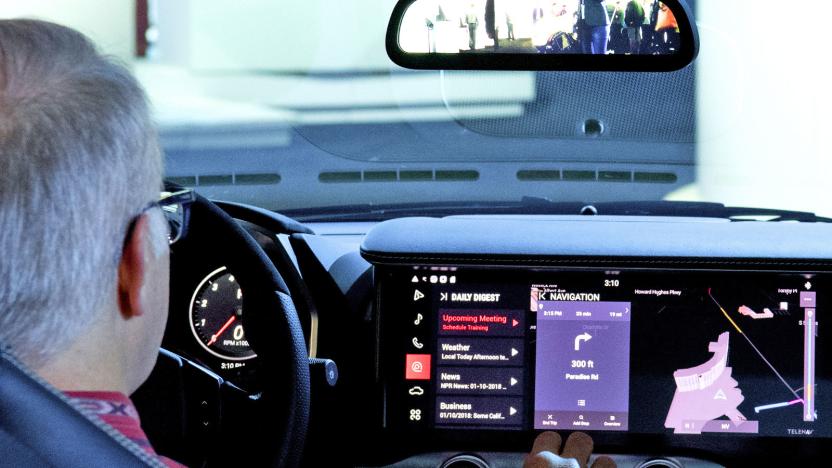
IBM's Watson-based voice assistant is coming to cars and smart homes
IBM has officially launched the Watson Assistant at its annual Think conference, and you might encounter it in various locations in the future. It's not tied to a single or even just a few products, you see -- unlike Siri that's tied to Apple's products, IBM's partners can load it onto their cars, smart home devices, office gadgets, so on and so forth. It could be infused into hospitality applications, say to serve as a smart assistant for hotels. It could have a future in retail, banking, and just about any industry, since the tech titan's partners can teach it a specific industry's lingo.








